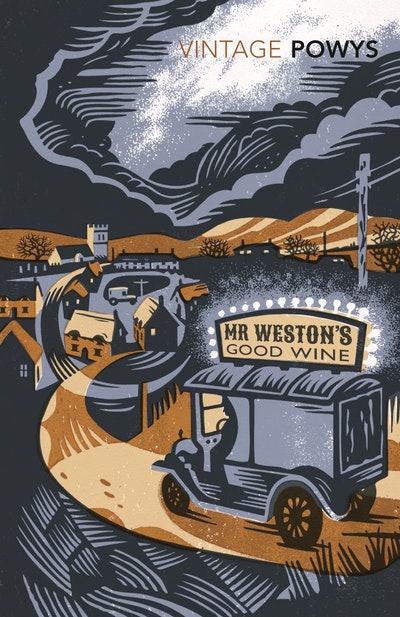[]
- Published: 1 October 2014
- ISBN: 9780099589655
- Imprint: Vintage Classics
- Format: Paperback
- Pages: 256
- RRP: $29.99
Mr Weston's Good Wine
Buy from…
- Published: 1 October 2014
- ISBN: 9780099589655
- Imprint: Vintage Classics
- Format: Paperback
- Pages: 256
- RRP: $29.99
Mr Weston's Good Wine is a book without parallel. It is an allegory, it is a bucolic farce, it is a religious (or anti-religious?) masterpiece
A N Wilson, Daily Telegraph
The greatest value of his work, though, is in showing that it is still possible to write about the primordial human experiences to which religion is a response...Very few 20th-century authors have the knack of writing convincingly of first and last things. A religious writer without any vestige of belief, Theodore Powys is one of them
John Gray, New Statesman
Grimly brilliant
John Carey, Sunday Times
[It is] generally considered his masterpiece
Washington Post
A writer who far outshone his contemporaries
Spectator
Mr Weston’s Good Wine turned the tide commercially...and it was an artistic success too
Times Literary Supplement
One of the strangest and most delightful books I’ve ever read
John Gray, Guardian
